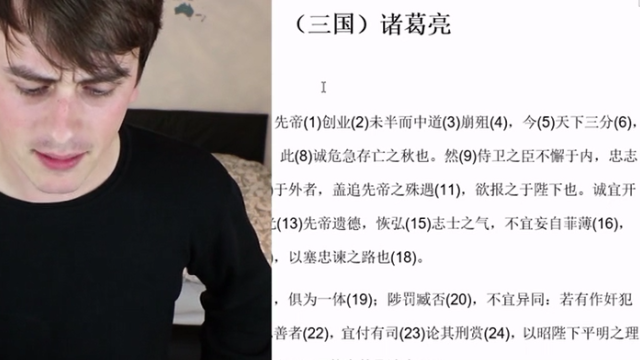天才的两面世界:爱迪生与乔布斯
作者:沪江英语编译
来源:NYTIMES
2011-11-10 17:19
The Wizard and the Mortal: Two Sides of Genius
奇才和凡人:天才的两面世界
IN August 1931, Thomas Alva Edison, age 84, became gravely ill with kidney problems. He recovered a little, then suffered a setback and was confined to bed at home, drifting in and out of consciousness. Newspapers issued multiple bulletins each day, reporting on signs of improvement or decline. The end came in the early morning of Oct. 18, 1931, with his family at his bedside.
1931年8月,时年84岁的托马斯·阿尔瓦·爱迪生因为肾脏问题病情严重。他有一点恢复,但是很快病魔再次袭来。伟大的发明家卧床不起,时而昏迷,时而清醒。当时的报纸每天都要发布很多条公告,报道爱迪生的病情减轻或是加重的迹象。这一切也终于走到了终结:1931年10月18日凌晨,爱迪生病逝,去世时他的家人都在他的身边。
That day, The New York Times ran nearly two-dozen articles on Edison’s life and death. Newspapers worldwide were filled with eulogies and remembrances for many days afterward. Words alone were not enough to express the nation’s grief. Heeding President Herbert Hoover’s request, many Americans briefly turned off their electric lights at 10 o’clock Eastern time on the night of Edison’s funeral.
当天的纽约时报刊登了有二十几篇文章,报道爱迪生的死讯和回顾他的生平。在那之后的好多天里,全球的报纸都满是哀悼和追忆之词。简单的文字似乎不足以表达这个民族的悲伤,根据当时美国总统胡佛的建议,许多美国人在爱迪生葬礼举行的当晚10点钟,暂时关掉了电灯,以示对这位伟大发明家的缅怀之情。
The broad outpouring that has followed the death of Steve Jobs reminds me of the display of grief following Edison’s death. In both cases, their passing evoked an extraordinary public response, tributes that were greater and broader than those paid to many a head of state. Why is that?
史蒂夫·乔布斯过世后,美国人民广泛流露的悲伤之情让我想起了爱迪生过世时的全国大哀悼。这两个人的离世引起了不寻常的公众反应,人们对他们的赞美远胜于许多国家元首。为什么会这样?
Both men have fully occupied my attention at different times. I wrote a book about Mr. Jobs in 1993. I looked at his struggling endeavor to start another computer company, NeXT, after he left Apple amid a power struggle in 1985. His return to Apple in 1997 and the triumphs that would follow were not within sight. I took my snapshot of him and the company when he was at the miserable nadir of his professional life.
他们都曾在不同的时间占据了我的注意力。1993年我写了一本关于乔布斯先生的作品。我主要关注了他在1985年权力之争中落败离开苹果创立另一家电脑公司NeXT的奋斗史,当时我也并没有预见到他会在1997年重返苹果以及后来他的一系列胜利。我的文字记录了职业生涯痛苦低谷时期的他和他的公司。
Years later, I wrote a biography of Edison, a person whom Mr. Jobs admired. When you compare the two personalities and their careers, a few similarities emerge immediately. Both had less formal schooling than most of their respective peers. Both possessed the ability to visualize projects on a grand scale. Both followed an inner voice when making decisions. And both had terrific tempers that could make their employees quake.
几年后,我开始写爱迪生传记。乔布斯很欣赏爱迪生。如果你把他们的个性和职业进行比较,你会立刻发现一些相似点。比起大多数的同龄人,他们接受正规教育都比较少;他们都拥有从宏观角度构想项目的能力;他们在做决定的时候都会听从内心的声音;他们脾气都很坏,会让员工抓狂。
Both men worked in several product areas, but entertainment-related technology was a major portion of their product portfolios. This prompts a question: Would the public’s relationship to Edison have been essentially the same without the phonograph and without movies? Or with Mr. Jobs, if Apple had remained just Apple Computer?
他们都曾涉足过不同的产品领域,但是与娱乐相关的科技总会是他们产品组合中主要的部分。这也提出了一个问题:如果没有留声机和电影,公众对爱迪生的感情还会一样吗?如果苹果只是苹果电脑,人们还会如此关注乔布斯吗?
After enjoying early success, each of them pursued a quixotic project that would occupy them for roughly 10 years — Mr. Jobs’s disappointing but enlightening NeXT odyssey and Edison’s failed attempt to build an iron ore processing business in northwestern New Jersey.
在取得早期的成功后,他们各自都花了大约十年的时间来追求一项不切实际的计划:乔布斯的NeXT奥德赛系统虽然令人失望都却很有启发作用;爱迪生在新泽西州西北部开始的铁矿石加工业务也以失败告终。
THE later careers of the two were more different than similar. Mr. Jobs was able to realize his product visions — again and again. Edison’s career was characterized by a pattern of introducing what today we would call a beta version of a product and then losing interest in it. Competitors would then swoop in and fully commercialize the idea — and profit the most from it.
不过他们后来的职业生涯有了很多的不同。乔布斯一次又一次实现了他对产品的愿景,而爱迪生的事业则陷入了一种模式:用现在的话来说就是产品的测试版,然后很快对这个产品失去兴趣。而他的竞争对手,则会蜂拥而入,将他的这些想法完全商业化,当然也从中获利颇丰。
Mr. Jobs was the far shrewder businessman, even if he never talked about wealth as a matter of personal interest. When Edison died, he left behind an estate valued at about $12 million, or about $180 million in today’s dollars. His friend Henry Ford had once joked that Edison was “the world’s greatest inventor and the world’s worst businessman.” Mr. Jobs was worth a commanding $6.5 billion.
乔布斯则是个很精明的商人,虽然他从没有表示过财富是他的个人兴趣所在。爱迪生死后,他留下了价值1200万美元的遗产,相当于现在的18亿美元。他的朋友亨利·福特(福特汽车公司的创始人)曾经拿爱迪生开玩笑说过:“这世界上最伟大的发明家也是最差劲的商人。” 乔布斯则要比爱迪生厉害得多,他去世时留下了65亿美元的遗产。
Mr. Jobs was perhaps the most beloved billionaire the world has ever known. Richard Branson’s tribute captures the way people felt they could identify with Mr. Jobs’s life narrative: “So many people drew courage from Steve and related to his life story: adoptees, college dropouts, struggling entrepreneurs, and people fighting debilitating illness. We have all been there in some way and can see a bit of ourselves in his personal and professional successes and struggles.”
乔布斯大概是最受大家喜爱的亿万富翁了。理查德·布兰森(英国亿万富翁)对乔布斯的赞美可能正好抓住了很多人从乔布斯生平中感悟到的认同感:“许多人从史蒂夫的故事中得到了勇气,与自己的人生经历产生了共鸣:出生时被收养,大学辍学,努力创业,对抗病魔。我们人生中可能都有一些相同的经历,在他的个人和事业成功和奋斗史中,我们会看到一些自己的影子。”
By contrast, Edison became a victim of his own manufactured life narrative and the world’s adulation. Earlier, when Edison introduced the spring-driven phonograph in 1878, a reporter coined a nickname for him: “The Wizard of Menlo Park.” He liked — too much — playing the Wizard. Educational reform. National defense spending. The fatal effects of clothing. The relationship of diet to national destiny. Much of it was ephemera or idiocy, best forgotten.
相比之下,爱迪生就是他自己的制造生涯和世界阿谀奉承之语下的牺牲品。1878年爱迪生发明了发条留声机,当时有一位记者给他取了个绰号叫:“门洛帕克的奇才。” 他太喜欢沉迷于天才的神奇世界里了。教育改革,国防开支,衣物对身体的致命影响,饮食习惯对民族命运的影响,这些要么是蜉蝣撼大树,要么超级白痴,只有被遗忘的下场。
Steve Jobs did not waste his time or ours with similar flotsam. A rare time that he publicly stepped out of the role of chief executive and shared personal thoughts was when he delivered the commencement address at Stanford in June 2005. It was a moving meditation on his life and his — and our — mortality. It was a talk for the ages.
乔布斯则不会在这些没用的东西上浪费他或者我们的时间。他仅有的一次走出首席执行官的角色与公众分享他的个人想法的机会是在2005年6月斯坦福大学毕业演讲上。那是对他的生命,对他还有我们最终的死亡一次动人的思考,那是时代的对话。
The public tributes to Edison in 1931 and those to Mr. Jobs 80 years later were similar, but only superficially. With Edison, the public thought of the Wizard, an outsize persona, through which it was impossible to see an actual person. But with Mr. Jobs, the tributes were to a fellow mortal, exactly our own height, just as vulnerable as we all are to the random strike of a life-ending catastrophe.
1931年公众对爱迪生的赞美和80年后对乔布斯的溢美之词内容相似,但是这种相似只是流于表面。想到爱迪生,人们会想到超级奇才,我们可能没法看到真实的人的存在;而乔布斯,他是和我们相同高度的凡人,和我们一样随时会被死神之手勒住脖颈的凡人。











